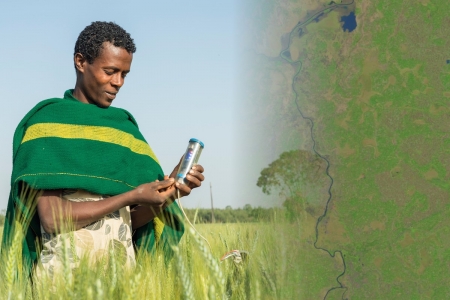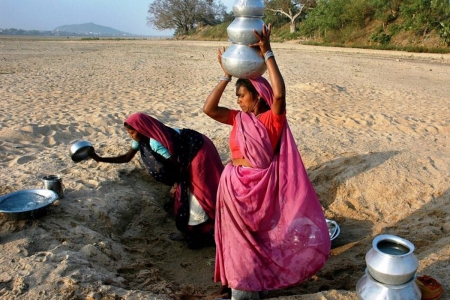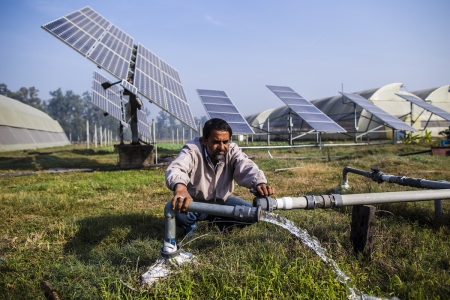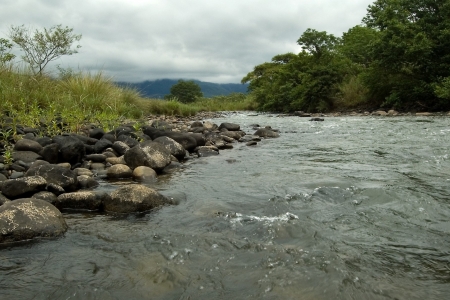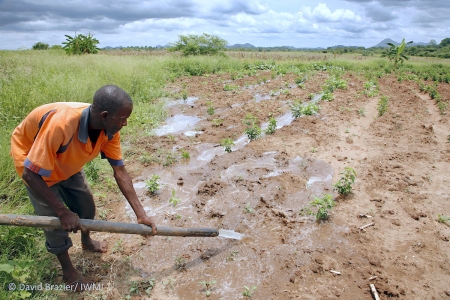Games can be serious business, and experiential resource-management games are helping Indian farmers improve stewardship of groundwater. And now the tool is scaling out.
In a pilot project involving communities in Andhra Pradesh, the games were shown to enhance understanding and increase adoption of rules for managing groundwater. Following trials of other games for enhancing management of surface water resources, an initiative was launched to bring both types of games to around a quarter of a million households across six Indian states with support from the Federal Government of Germany.
Out of sight beneath the land, groundwater is a particularly challenging common-pool resource to manage. Because many factors influence its availability -- rainfall, state policies, local rules and individuals' choices -- it can become easily depleted. In Andhra Pradesh, the number of wells and land irrigated by groundwater almost tripled in 30 years. By 2008, 300 of the state's 1,227 groundwater blocks (a sub-district administrative unit) were considered to be 'critical' or 'overexploited', with a further 208 deemed 'semi-critical.'
A problem in managing groundwater is that well owners who extract water cannot directly see the groundwater stock or how their extraction of water affects their neighbors. This can make it difficult for them to understand the consequences of their use on others, or vice versa. Experiential games help reveal what motivates people to cooperate when using common-pool resources, such as groundwater, forests or fisheries. However, no one had examined whether these games could also prompt cooperation in the real world.
Seeking to investigate this, the International Food Policy Research Institute (IFPRI) partnered with the Indian NGO Foundation for Ecological Security (FES) and Arizona State University (ASU). FES helps communities Andhra Pradesh improve how they manage water resources. With support from the CGIAR Research Program on Water, Land and Ecosystems (WLE), the NGO introduced a groundwater game, designed by ASU, which proved helpful for communities struggling with groundwater depletion.
In the game, participants chose between growing Crop A, (requiring little water but yielding a modest income) and Crop B (a thirsty but lucrative choice). If they all picked Crop A, the communal water resource was sustainable. The more people who chose Crop B, the faster the groundwater level dropped. Two years on, a significantly higher proportion of game-playing villages had adopted groundwater management rules than non-game-playing communities in the same program.
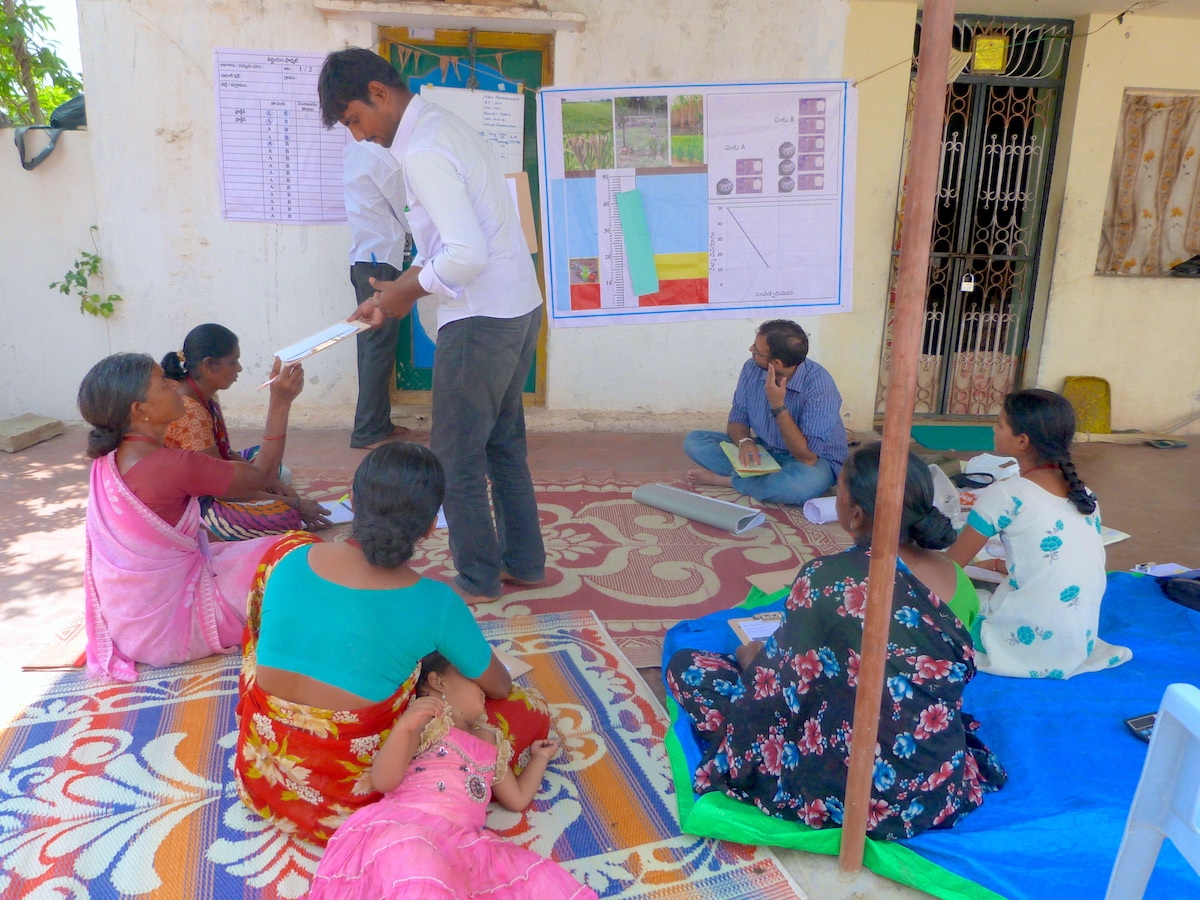
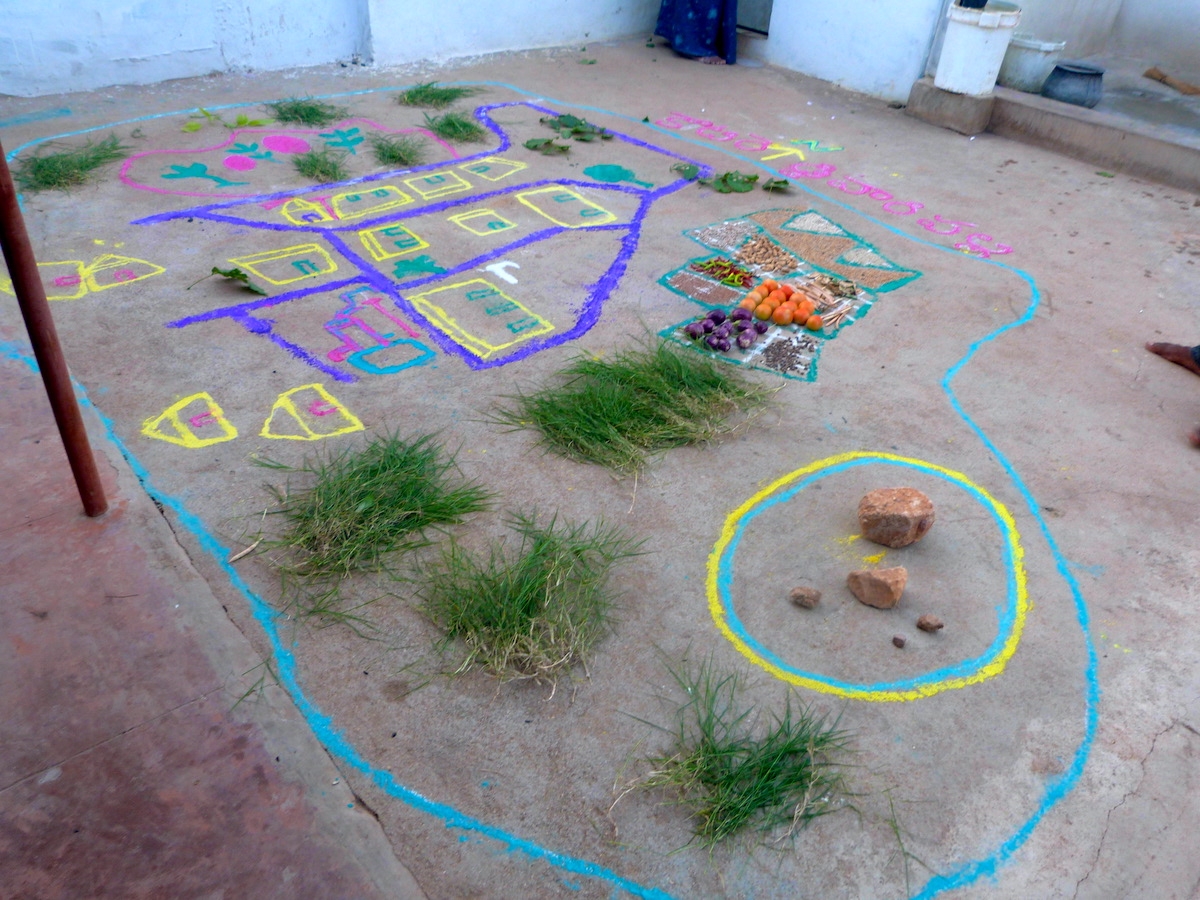
In parallel, the CGIAR Research Program on Policies, Institutions and Markets (PIM) has funded ICRISAT to develop experiential games for surface water management and similar collective action games to also cover communal forest areas and other communal systems.
Now that the tool is scaling out across India, WLE/PIM researchers expect more communities will use it to reduce conflict and save precious water resources.

